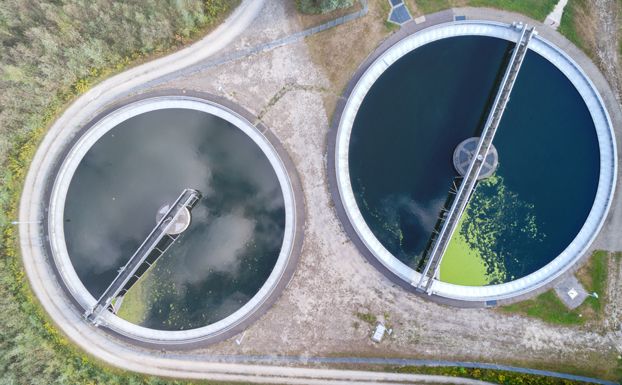High-Performance Thin-Layer Chromatography
-
High Sensitivity and Resolution
-
Cost-Effective and Time-Efficient
-
Non-Destructive and Sustainable
-
Visual Documentation
HPTLC is an essential tool in environmental analysis, offering precise and efficient detection of pollutants in air, water, soil, and biological samples. It enables the identification of harmful substances such as pesticides, industrial chemicals, heavy metals, and Persistent Organic Pollutants (POPs), ensuring compliance with environmental regulations.
In addition to pollutant detection, HPTLC is widely used for wastewater analysis, microplastic detection, and biomonitoring, where it assesses the accumulation of toxins in organisms. Its high sensitivity allows the detection of even trace contaminants, making it particularly suited for large-scale environmental studies.

HPTLC application in Environmental Analysis
Applications in Water Quality Monitoring and Beyond
HPTLC is particularly adept at monitoring water quality, providing a reliable method for assessing the presence of chemical residues and contaminants. It’s not limited to water analysis; HPTLC can also be used for examining residues in soil, manure, crops, and leachate water from landfill sites.
Advanced Techniques: Coupling HPTLC with Effect-Directed Analysis
By combining HPTLC with effect-directed analysis (EDA), known and unknown toxins in environmental samples can be detected. Large water volumes are concentrated on the HPTLC plate for analysis, followed by effect-directed assays like Aliivibrio fischeri, AChE, pYES, and Bacillus subtilis. This method provides valuable insights into the chemical properties and toxicity of the separated analytes directly on the plate without any cumbersome sample collection process.
Pollutant Detection
HPTLC is used to detect and quantify a variety of pollutants, such as industrial chemicals and organic contaminants, in water and soil samples. This allows environmental scientists to monitor the presence and concentration of harmful substances, ensuring they do not exceed regulatory limits.
Pesticide and Herbicide Residue Analysis
Monitoring pesticide and herbicide residues is essential to assess the impact of agricultural practices on the environment. HPTLC provides a reliable method for detecting trace amounts of these compounds in water, soil, and food products, ensuring environmental safety and regulatory compliance.
Analysis of Persistent Organic Pollutants (POPs)
Persistent Organic Pollutants (POPs) are chemicals that remain in the environment for long periods, accumulating in ecosystems and posing health risks. HPTLC is highly effective in identifying and quantifying POPs such as dioxins, PCBs, and PAHs, helping researchers track environmental contamination and its effects on wildlife and human health.
Wastewater and Industrial Effluent Testing
HPTLC is employed in the analysis of wastewater and industrial effluents to monitor harmful substances like dyes and chemicals. This ensures that industries meet environmental standards by properly treating waste before release, reducing their impact on ecosystems.
Biomonitoring
HPTLC is used in biomonitoring to assess the exposure of plants, animals, and humans to environmental pollutants. By analyzing biological samples such as tissue or fluids, it helps identify bioaccumulation of toxins and their potential health effects.









